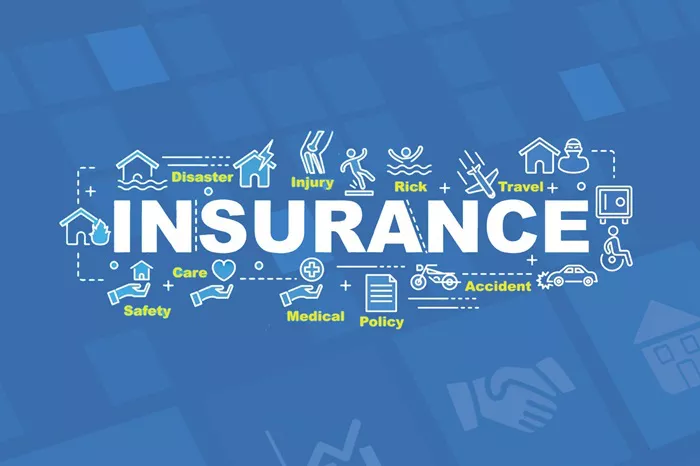In the realm of homeowners insurance, many factors come into play when determining premium rates. One often overlooked but significant factor is an individual’s credit score. Insurance companies frequently use credit scores as a tool to assess the risk associated with insuring a homeowner. This guide delves into the intricacies of how credit scores affect homeowners insurance premiums, why they matter, and what homeowners can do to navigate these considerations effectively.
Explanation
Credit scores serve as a measure of an individual’s financial responsibility and stability. For homeowners insurance companies, a good credit score typically suggests that the policyholder is more likely to manage their financial obligations responsibly. This responsible behavior is often correlated with a lower likelihood of filing insurance claims, making individuals with higher credit scores more attractive to insurers.
Industry Practice
Using credit scores in the underwriting process is a widespread practice among most major insurance companies. However, it’s important to note that regulations regarding the use of credit scores in insurance vary by state. Some states have restrictions or limitations on how insurers can use credit information to determine premiums.
How Credit Scores Are Used
Underwriting Process
Insurance underwriters assess the risk associated with insuring a homeowner based on various factors, including credit scores. The underwriting process involves evaluating these factors to determine the appropriate premium rate for each policyholder.
Risk Assessment
From an insurer’s perspective, a good credit score indicates a lower risk profile. Statistics show that individuals with higher credit scores tend to file fewer claims, which translates into lower overall risk for the insurer. As a result, homeowners with good credit scores are often rewarded with lower insurance premiums.
Impact on Premiums
Lower Premiums for Good Credit
Homeowners with good to excellent credit scores typically qualify for lower insurance premiums. Insurers view these individuals as lower risk, which means they are likely to pay less for their homeowners insurance compared to those with lower credit scores.
Higher Premiums for Poor Credit
Conversely, individuals with poor credit scores may face higher homeowners insurance premiums. Poor credit is associated with a higher likelihood of filing claims or defaulting on payments, which increases the perceived risk for insurers.
Credit Score Range
The specific impact of credit scores on homeowners insurance premiums can vary based on the insurer’s specific policies and the individual’s credit score range. Generally, the higher the credit score, the greater the potential for lower premiums.
Other Factors Affecting Premiums
Home Value
The value of the insured home is a significant factor in determining homeowners insurance premiums. More expensive homes generally cost more to insure due to higher potential replacement costs.
Location
Where a home is located also plays a crucial role in insurance premiums. Factors such as crime rates, proximity to natural disaster-prone areas, and local building codes all influence the risk assessment by insurers and, consequently, the premium rates.
Coverage Amount
The amount of coverage selected by the homeowner directly impacts premium costs. Higher coverage limits mean greater financial exposure for the insurer in the event of a claim, leading to higher premiums.
Deductible
Homeowners can adjust their insurance premiums by choosing a higher or lower deductible. Opting for a higher deductible typically lowers the premium cost, as the policyholder assumes more financial responsibility upfront in the event of a claim.
Tips to Improve Credit Score
Pay Bills on Time
Consistently paying bills on time is one of the most effective ways to build and maintain a good credit score. Late payments can significantly impact credit scores negatively.
Manage Debt
Reducing overall debt levels and avoiding new high-interest loans or credit cards can improve credit scores over time. Lower debt levels indicate responsible financial management to insurers.
Check Your Credit Report
Regularly reviewing your credit report allows you to identify any errors or inaccuracies that could be negatively affecting your credit score. Disputing and correcting these errors can improve your creditworthiness.
Use Credit Responsibly
Maintaining a balanced credit utilization ratio and avoiding maxing out credit cards demonstrates responsible credit usage. This responsible behavior can positively impact your credit score.
See Also: What Affects Homeowners Insurance Premiums
Additional Considerations
State Regulations
It’s essential to be aware of state-specific regulations regarding the use of credit scores in insurance underwriting. Some states have enacted laws that restrict or regulate how insurers can use credit information to determine premiums.
Insurance Shopping
To find the best homeowners insurance rates, it’s advisable to shop around and compare quotes from multiple insurers. Different insurance companies weigh factors such as credit scores differently, so obtaining multiple quotes can help homeowners find the most competitive premium rates for their specific circumstances.
Conclusion
Understanding the relationship between credit scores and homeowners insurance premiums is crucial for homeowners looking to secure affordable and comprehensive insurance coverage. While credit scores do play a significant role in determining premiums, they are just one of many factors insurers consider. By actively managing their credit, homeowners can improve their financial standing and potentially lower their insurance costs. Additionally, staying informed about state regulations and exploring insurance options can help homeowners make informed decisions about their homeowners insurance coverage. For personalized advice and assistance, consulting with an insurance professional can provide valuable insights tailored to individual needs and circumstances.
[inline_related_posts title=”You Might Be Interested In” title_align=”left” style=”list” number=”6″ align=”none” ids=”2811,2724,2721″ by=”categories” orderby=”rand” order=”DESC” hide_thumb=”no” thumb_right=”no” views=”no” date=”yes” grid_columns=”2″ post_type=”” tax=””]





















